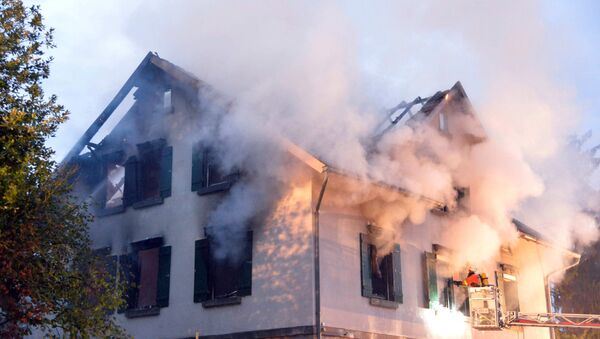The figures show the amount of right-wing extremist offenses in Germany increased in 2015 by one third in comparison with 2014, and the number of right-wing extremist violent offences increased by almost half.
In 2015 there were 13,846 right-wing extremist offenses, up from 10,541 in 2014. The number of violent right-wing extremist offenses increased even more sharply, from 496 in 2014 to 921 in 2015. The majority of the violent attacks, 612, were motivated by xenophobia.
The numbers were released after a request by German Left Party politician Petra Pau, who said the real amount could be even higher.
"Experience has shown that the real numbers, beyond those registered by the federal and state police authorities, are twice as high," Pau said, Die Zeit reported.
"That means that we have three to four right-wing motivated crimes every day."
The figures show that the number of right-wing extremist offenses increased during the year; in July there were 1,146 such offenses, up from 946 in June. The increase continued through the summer months and peaked in October, when there were 1,717.
November (1,348) saw a decline in the number of offenses, and in December 1,186 right-wing extremist offenses were committed.
Die Bundesregierung hat geantwortet: https://t.co/ZgwvVlsEsx Straf- und Gewalttaten von Nazis #Menschenfeinden 2015 #DeutscheZustände2015
— Petra Pau (@PetraPauMaHe) 10 февраля 2016
'The federal government has answered,' German Left Party politician Petra Pau published the figures online.
"We can't integrate them for nothing," the minister told the Funke Mediengruppe.
"We can't take the money away from the long-term unemployed. Otherwise that creates displacement and competition which stokes fears instead of reducing them," Nahles explained, who has already begun negotiations with Finance Minister Wolfgang Schauble about getting more money.
Nahles said that the creation of job opportunities for 100,000 refugees would cost at least 450 million euros a year, and more money would be needed for other integration measures such as additional support during training.
Her department estimates that an extra 270,000 people will receive unemployment benefits in 2016, around 200,000 of whom are capable of work.





